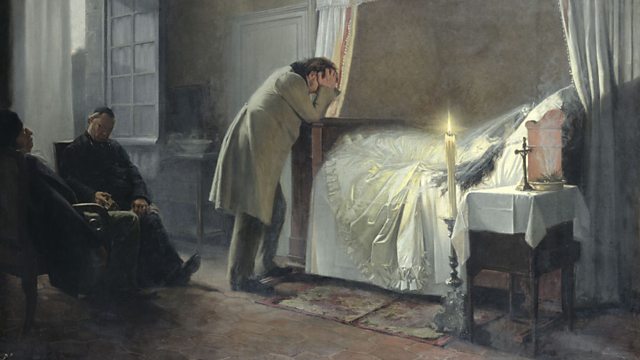Madame Bovary
Melvyn Bragg and guests discuss the literary sensation caused by the trial for indecency of Gustave Flaubert's novel Madame Bovary.
Melvyn Bragg and guests discuss the literary sensation caused by Gustave Flaubert's novel Madame Bovary. In January 1857 a man called Ernest Pinard stood up in a crowded courtroom and declared, “Art that observes no rule is no longer art; it is like a woman who disrobes completely. To impose the one rule of public decency on art is not to subjugate it but to honour it”. Pinard was no grumbling hack, he was the imperial prosecutor of France, and facing him across the courtroom was the writer Gustave Flaubert. Flaubert’s work had been declared “an affront to decent comportment and religious morality”. It was a novel called Madame Bovary.The story of an adulterous housewife called Emma, Madame Bovary, is a vital staging post in the development of realism. The arguments in court involved a heady brew of art, morality, sex and marriage and ensured the fame of the novel and its author. With Andy Martin, Lecturer in French at the University of Cambridge; Mary Orr, Professor of French at the University of Southampton; Robert Gildea, Professor of Modern History at the University of Oxford
Last on
Broadcasts
- Thu 12 Jul 2007 09:00�鶹��ƵAV Radio 4
- Thu 12 Jul 2007 21:30�鶹��ƵAV Radio 4
Featured in...
![]()
Literary Heroines
Literary Heroines
![]()
19th Century—In Our Time
Browse the 19th Century era within the In Our Time archive.
![]()
Culture—In Our Time
Popular culture, poetry, music and visual arts and the roles they play in our society.
In Our Time podcasts
Download programmes from the huge In Our Time archive.
The In Our Time Listeners' Top 10
If you’re new to In Our Time, this is a good place to start.
Arts and Ideas podcast
Download the best of Radio 3's Free Thinking programme.
Podcast
-
![]()
In Our Time
Melvyn Bragg and guests discuss the ideas, people and events that have shaped our world.




